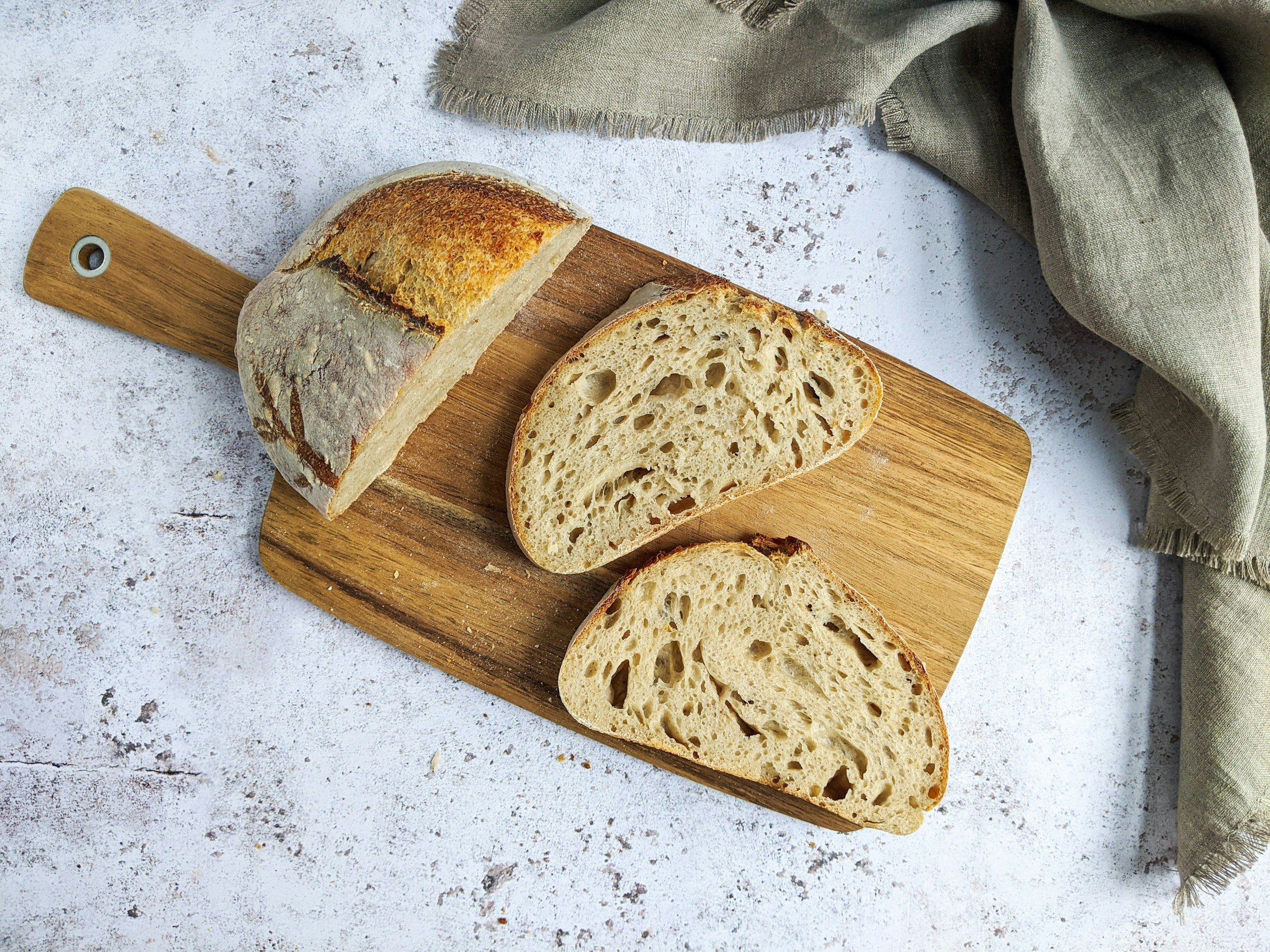
BEGIN YOUR WELLNESS JOURNEY.
No Preservatives or Additives
Made with just a few real ingredients: flour, water, salt, and time; sourdough is a clean, simple option you can feel good about eating.
blood sugar management
Sourdough bread has a lower glycemic index than white bread, meaning it's less likely to cause blood sugar spikes.
This is because the bacteria used to make sourdough changes the structure of the bread's starch, which slows down how quickly your body absorbs it.
digestion
Thanks to a long, natural fermentation process, sourdough can be easier to digest than conventional bread. Fermentation breaks down gluten and phytic acid, which can cause bloating or discomfort in some people.
It may also act as a prebiotic, feeding the good bacteria in your gut and helping to maintain a healthy digestive system.
Nutrients
Sourdough bread is rich in nutrients, including healthy carbs, protein, fiber, iron, and vitamins like folic acid. The lactic acid bacteria in sourdough also produce antioxidants, which can help protect your cells from damage that can lead to serious diseases.
Phytic acid, a natural compound in grains that blocks nutrient absorption, is reduced during sourdough fermentation, helping your body absorb more iron, magnesium, and zinc from each bite.




